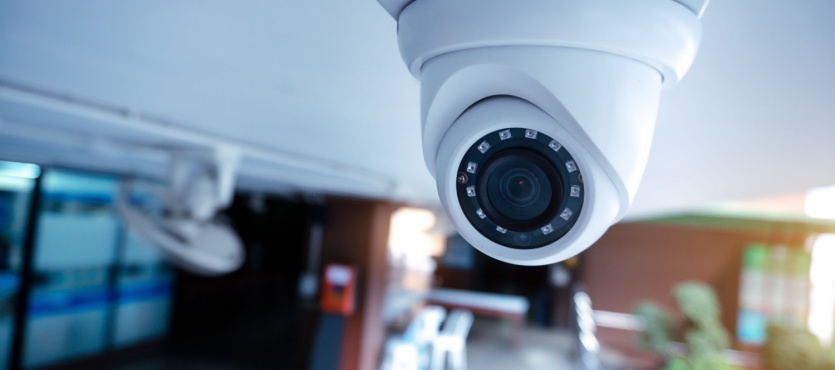It seems like we have little privacy nowadays, and all these surveillance cameras everywhere are making things worse. But when it comes to nursing homes, many believe that the more cameras, the merrier.
Nursing home abuse and neglect have become a growing problem in the United States. The typical nursing home model relies on low wages and understaffing in order to ensure there is staffing in place, but for the lowest cost possible. Nursing homes are in the business to make money. They want to protect their bottom line — at your loved one’s expense.
Statistics show that at least 1 in 6 Americans over the age of 60 has experienced abuse in the past year. And because abuse is typically underreported, this number could actually be much higher. A lot of this abuse and neglect happens in the confines of nursing homes.
Employees are overworked and stressed out. Many nursing home residents have physical and cognitive impairments, making abuse more likely to occur because these residents cannot defend themselves.
What are loved ones to do? They expect that their loved ones will be cared for in a nursing home facility, but in many cases, they’re not. They’re in danger.
Family members cannot be with their loved ones 24/7, but they still want to know what is going on in nursing facilities. Their loved ones may suffer from mental issues and cannot tell them what is happening. They cannot trust staff members. Can cameras in nursing homes help?
What Lawmakers are Doing
Lawmakers seem to think that having cameras in nursing homes can help identify what is really happening in nursing homes. For example, how did a resident get bruises and broken bones? Maybe surveillance footage could pinpoint the problem.
A new bill in the Florida Senate would allow cameras to be installed in a nursing home or assisted living resident’s room. Law enforcement officials are giving it the thumbs up, saying they could benefit from the evidence. According to Brevard County Sheriff’s Office Public Information Officer Tod Goodyear, “The more evidence we have on a case, the clearer the picture of what happened becomes. So, it would be a bonus to us.”
Under the bill, a resident or their guardian would have the right to record video, audio, or both. The facility would not be able to decline this request. They also would not be able to discharge a resident or otherwise discriminate or retaliate against them for the decision to install and use an electronic monitoring device in their room.
However, the resident or their family would be on the hook for the cost. Also, if the resident has a roommate, they would also need to obtain their consent.
The bill would be especially helpful for patients in memory care facilities. These patients often have diminished capacity and are not able to verbalize well. They also have cognitive or memory issues to some degree. Times and dates can be fuzzy, so having video evidence can serve as a timeline as to when and how the abuse started.
On the other hand, the bill could also be helpful to the facility and its staff. They may be accused of abuse, but the video surveillance may tell a different story. So, having cameras could provide evidence to help staff members maintain their innocence.
What to Know About Cameras in Nursing Homes
Cameras in nursing homes can help families feel more assured about their loved ones’ care, but they can also lead to ethical and legal concerns. There are some benefits to these cameras. They can catch acts of abuse or neglect and help with criminal investigations. They can provide peace of mind for those who want to keep their loved ones safe. Cameras can also increase staff accountability and adherence to care protocols/
However, camera use comes with some cons as well. Cameras can cause anxiety or distress for residents who are being monitored. They can infringe on a resident’s privacy. They can also increase a nursing home’s risk of liability if proper protocols aren’t followed.
One of the biggest concerns is regarding the Health Insurance Portability and Accountability Act (HIPAA). HIPAA ensures the privacy of a person’s healthcare information. The use of cameras could violate this right if they’re installed without consent from all relevant parties. There’s also concern that footage could be inappropriately accessed by staff.
Right now, more than a dozen states allow for cameras in nursing homes. These states require conditions such as the following:
- There must be written consent from the resident and any roommates.
- The facility must receive written notification prior to installation.
- Facilities cannot retaliate or deny entry to residents who request cameras.
- Residents and families must pay for the installation costs.
- Facilities cannot view or tamper with the footage without permission.
Contact Us Today
Cameras in nursing homes can provide evidence of possible harm to patients and even help deter abuse and neglect in the first place.
You want to keep your loved one safe. You need an attorney skilled in this area of law who will fight for your loved one’s rights. The Florida nursing home neglect lawyers at Brill & Rinaldi, The Law Firm, know how to best pursue justice for your loved ones. To schedule a consultation, call (954) 876-4344 or fill out the online form. We have offices in Weston, Coral Gables, and Daytona Beach.

